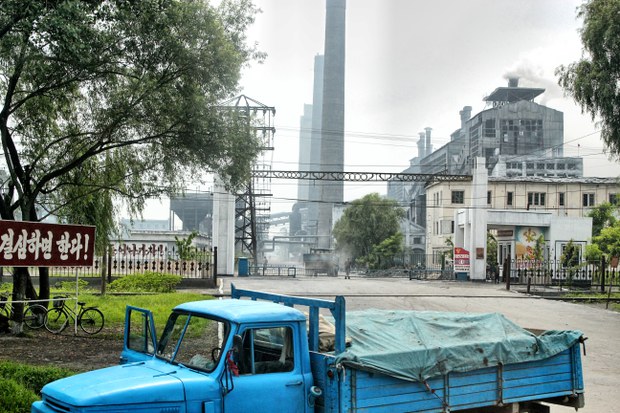North Korea inspects air-raid shelters as tensions rise with US
Share

Nationwide inspections of civil defense defense shelters at North Korean factories are being conducted.
North Korean officials are inspecting air-raid shelters in factories and other businesses to assess their wartime readiness, although some poorly maintained bunkers are winning approval due to bribes, sources said.
The random inspections usually occur during times of increased tensions with the U.S. or South Korea, a company official in the eastern province of South Hamgyong told RFA’s Korean Service on condition of anonymity for security reasons.
“This inspection is a project to complete war preparations so they can implement the party’s civil defense policy to protect the homeland,” said the source.
“The Civil Defense Department of the Central Committee issued a directive to each organization and company to be well-equipped for air-raids, following joint military exercises between South Korea and the U.S. conducted in August,” he said.
Tensions ratcheted higher on Sept. 8 when the country’s leader Kim Jong Un declared to the Supreme People’s Assembly that North Korea would never give up nuclear weapons. Earlier that same day the assembly passed a law that lays out situations where Kim would be authorized to order a preemptive nuclear strike.
Other sources told RFA that the inspections could be a reaction to the recently held high-level Extended Deterrence Strategy and Consultation Group meeting between South Korea and the U.S., and Washington’s deployment of B-1B strategic bombers and nuclear-powered aircraft carrier to the Indo-Pacific region.
The South Hamgyong source said the air-raid shelter inspections assess shelter capacity, interior lighting, durability and the functionality of loudspeakers.
“Most factories and companies already have air-raid protection. But not all employees are able to evacuate, and the shelters aren’t really all that safe,” said the source.
“The Civil Defense Department is aware of this situation. They randomly inspect the air-raid shelters of institutions and companies to keep them on their toes for shelter maintenance,” he said. “If their company or organization receives a poor evaluation, managers and lower-level party secretaries will be scolded.”
But sometimes bribes can convince inspectors to overlook deficiencies. A factory in Unhung county in the northern province of Ryanggang passed its inspection, despite its poor condition, a source there told RFA.
“They call it a shelter, but all of the necessary preparations were not met at all,” the second source said on condition of anonymity to speak freely. “There are two air-raid shelters in our factory. They are so small that they can only protect half of our 120 workers.”
The factory had been putting off maintenance of the shelter for a long time, according to the second source, so they scrambled to get it ready for the inspection.
“It has been a while since the roof of the air-raid shelter collapsed and the entrance door fell off. However, it was left unattended until now. The factory mobilized workers to fix it and rebuilt it ahead of this inspection,” he said.
“Since the air-raid shelter is dug out of the ground, during the rainy season, the rain collects inside, which causes its soil walls to collapse. Every time an inspection happens, the workers struggle to fix the air-raid shelters in a hurry,” the second source said.
The civil defense officials are aware that the shelter is not up to snuff, but they pass it anyway because factory officials bribe them, he said.
“They can get meals or packs of cigarettes to cover up any deficiencies if the condition of the air-raid shelter is not severe. It makes me laugh to hear that they have completed preparations for war after making a shelter that really is only a small crypt space,” the source said.
Translated by Claire Shinyoung Oh Lee and Leejin J. Chung. Written in English by Eugene Whong.







